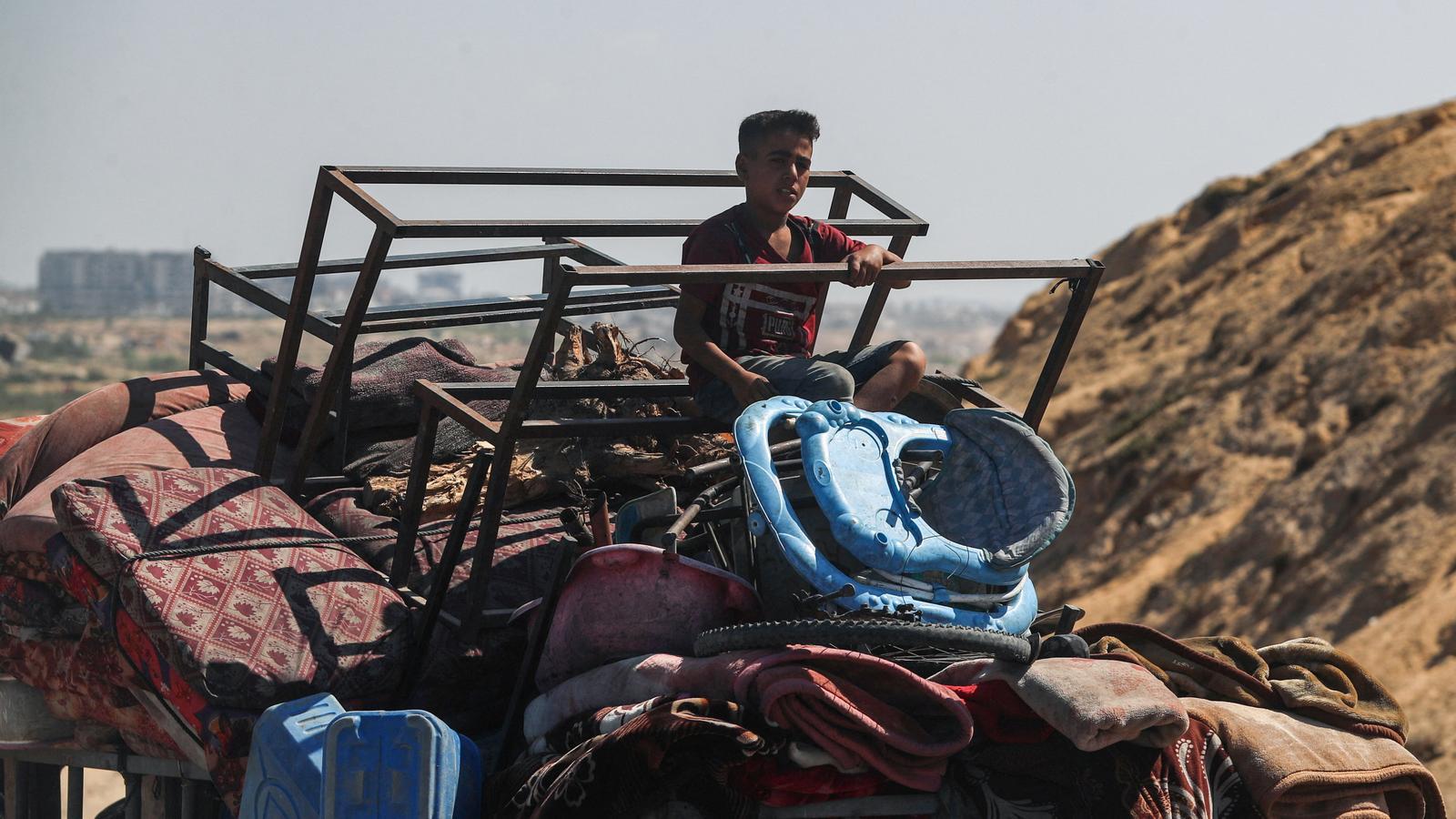“Staying in Gaza City is terrifying”: Hundreds of thousands of Palestinians remain trapped
Despite the Israeli army's bombings and orders to abandon the Strip's main city, most have not fled due to lack of means, safe alternatives, or resignation.


CairoAbdul Hakim El Suwaisy, a 20-year-old engineering student at Al-Azhar University, says the situation in Gaza City has deteriorated so much following the military offensive launched by Israel in August that his goal is to survive day by day, without knowing what the future will hold. And with a mother with diabetes and a sister with Down syndrome, he adds, everything is even more complicated. "We survive one day, and when the next day comes, we begin a new story of survival searching for food and clean water," he explains to ARA.
At the end of August, Israeli Prime Minister Benjamin Netanyahu, announced the approval of an army plan to gain control Gaza City, the Strip's main city, where an estimated one million people still lived. Shortly after, Israel declared the entire city a military zone, and has since escalated its operations, with a very aggressive bombing campaign and a major ground offensive.
During the first weeks of the offensive, the Israeli army has also resorted to new tactics that appear primarily aimed at clearing the city by force. One of the most destructive tactics has been to mark dozens of large buildings, including some residential ones, as military targets as a prelude to bombing them. With these actions, Israel is rapidly eliminating many of the few remaining housing options available to the local population.
"The sky over Gaza City is filled with smoke from the missiles and explosives [launched] throughout the city," Tahani Rahmi, a medical student at the Islamic University and mother of two, describes in the ARA. "It's almost impossible to live and get food or water for the children," she laments. "Staying in Gaza City is terrifying, especially after my husband was injured more than once while trying to get food and milk for the children."
On Tuesday, Israel took an even more drastic decision, openly ordering the city's residents to abandon it and head to a designated area in the coastal region of Al Mawasi, in the southern Gaza Strip. It is estimated that around 200,000 people have already chosen to flee since the end of August. But the number of displaced people is lower than the Israeli military had expected at this point, as hundreds of thousands of civilians are unable or unwilling to leave.
The cost of transportation
One of the main reasons why many people haven't moved to southern Gaza is that transportation costs are, for most, prohibitively high. "I have to do whatever it takes to survive, for me and my children," Rahmi says. "I could accept the idea of moving to southern Gaza, but transportation prices are high, and it would cost us more than $300 to find a way to get there with my children and my injured husband," she explains.
Beyond the costs of displacement, the Al Mawasi area, where the Israeli army is attempting to concentrate the Gaza population, is overcrowded, lacks sufficient services to cover the most basic needs of those who have relocated, and has been repeatedly attacked. Furthermore, more than 85% of the Strip's territory has been declared a military zone or received expulsion orders, so the areas of the enclave where people can move are increasingly limited, and housing options, even tents, are very limited and expensive.
"The lack of money in these times of war makes it very difficult to move, so staying in Gaza City is, for now, our only option," Rahmi says. "There are many residents of the city who also have the same problem: they don't have the money to leave. Two years of genocide have made having money impossible." She adds: "All we have is enough to buy food and baby formula."
But for others, choosing not to go south isn't just a response to economic problems, but simply a refusal to leave their city without any guarantees. "The media portrays southern Gaza as a safe zone, but in reality, the entire Gaza Strip is a war zone, and there's bombing everywhere," El Suwaisy notes. "I don't plan to leave the city because, whether in Gaza or the south, there's nowhere safe, and I can find water for my mother, my sister, and I if we were to leave; nor do I know where we'd get food if we moved south," he laments. "So we'll stay in the city until the end."
